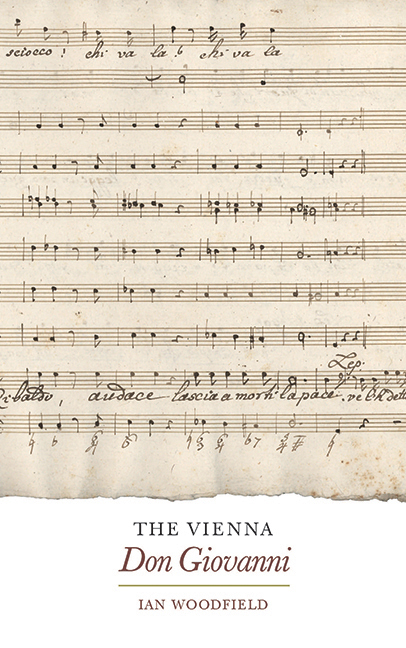Book contents
- Frontmatter
- Contents
- List of Illustrations
- List of Tables
- Preface
- A Note on the Use of the Term ‘Score’
- Glossary
- Abbreviations
- Plot Summary
- Casts of the First Performances
- Introduction
- 1 The Prague Don Giovanni
- 2 The Vienna Don Giovanni
- 3 The late eighteenth-century dissemination of Don Giovanni
- Conclusion
- Appendix 1 Error transmission
- Appendix 2 Page-break analysis
- Notes
- Bibliography
- Index
3 - The late eighteenth-century dissemination of Don Giovanni
Published online by Cambridge University Press: 09 May 2017
- Frontmatter
- Contents
- List of Illustrations
- List of Tables
- Preface
- A Note on the Use of the Term ‘Score’
- Glossary
- Abbreviations
- Plot Summary
- Casts of the First Performances
- Introduction
- 1 The Prague Don Giovanni
- 2 The Vienna Don Giovanni
- 3 The late eighteenth-century dissemination of Don Giovanni
- Conclusion
- Appendix 1 Error transmission
- Appendix 2 Page-break analysis
- Notes
- Bibliography
- Index
Summary
By far the most significant element in the reception of Mozart's operas during the composer's lifetime was their transfer into the cultural world of the Singspiel. Typically, a number of different translations and adaptations would begin to gain currency in the various regions of the German-speaking world a year or two after the original première. In the case of Don Giovanni, this tradition began to gain momentum in 1789. There is no evidence that Mozart was himself consulted about any of these new German language productions, but his involvement in further stagings of his operas in Italian is demonstrable. He could also have continued to exert influence indirectly on the continuing development of the original production now under the control of Domenico Guardasoni. The assimilation of some elements of Mozart's 1788 Vienna revision into the Prague performing traditions of Don Giovanni occurred no later than 1789. Mozart's awareness of this rapprochement, let alone his involvement in it, remains uncertain, but the version of the opera that began to emerge in Guardasoni's company during its seasons in Leipzig (1788) and Warsaw (1789) was to prove influential. In due course Mozart's Vienna revision itself made its own accommodation with the ‘lost’ Prague pieces.
Guardasoni's performances of Don Giovanni in 1788 and 1789
So far as is known, the first Italian language performance of Don Giovanni out-side Prague and Vienna was given in Leipzig during Guardasoni's annual summer season. The company was the newly renamed Guardasonisch[en] Gesellschaft Italiänischer Opernvirtuosen. The superb collection of theatre posters in the Leipzig Stadtgeschichtliches Museum includes one advertising the première on 15 June 1788 under the title: ‘Il dissoluto punito / o sià / il D. Giovanni / Der gestrafte Ausschweifende / oder D. Jean’. It is described as ‘Ein grossen Singspiel, mit Chören, vielen Decorationen und doppeltem Orchester’. The music had been composed expressly by the ‘famous Kapellmeister Hr. Mozart’. Libretti were available and also copies of the music. The opera was scheduled to start precisely at 5.30 pm and end around 8.00 pm. The cast is given in full, as shown in Table 23.
- Type
- Chapter
- Information
- The Vienna Don Giovanni , pp. 115 - 141Publisher: Boydell & BrewerPrint publication year: 2010

